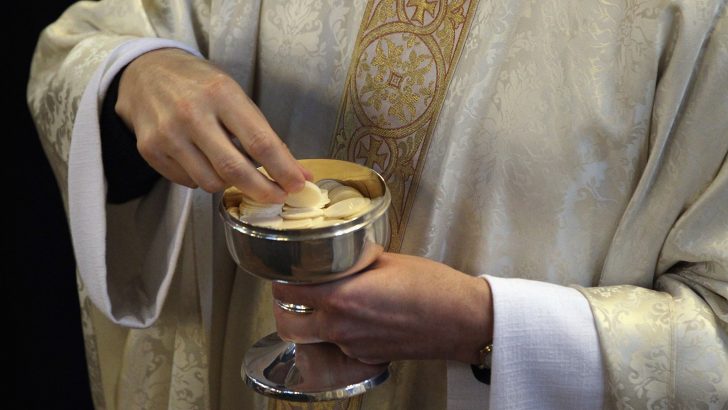Theologians and those who reflect on religion and culture often ponder to what extent Catholicism was actually ever deeply embedded in the Irish psyche. This is not an issue about religious practice or the dominant position of the Church in Irish society. Fr Oliver Rafferty SJ has observed that during the 1950s – thought by some to be the pinnacle of ‘Catholic Ireland’ – “the spectacle in rural areas of groups of men huddled outside the church building, while their wives and children performed their liturgical duties, might indicate that a certain ecclesiastical conformism, touching as it did issues of the normative patterns of social behaviour, rather than a deep hold of the Christian faith, was the hallmark of Catholic Ireland.
“The fact of full churches and a passive and conformist laity gave rise, on the part of ecclesiastical officialdom, to a certain complacency and even arrogance. But there is also a sense in which in many instances the Catholic faith per se, for obvious historical reasons, was, for some at least, at best skin deep,” Rafferty writes in Ireland and Vatican II (edited by Fr Niall Coll and published by Columba Press in 2015).
Odd mixture
Msgr Paddy Browne, president of University College Galway, commented on Irish-speaking fishermen he encountered in Connemara at the time that they were an odd mixture of Christian, atheist and pagan.
It’s worth pondering to what extent amidst the undoubted sincere Faith of many Catholics in 20th Century Ireland, cultural Catholicism masked a much deeper decline of Faith. Even at the time of the visit of St John Paul II in 1979, full churches and enthusiastic crowds everywhere the Pontiff went were taken as evidence that the Church was in rude health.
What recent decades have revealed, is the extent to which Irish Catholics – including many of them who are regular Massgoers – are really at odds with their Church on so many issues. Yet, the persistence of cultural Catholicism has led to a situation where even those who profess that they no longer believe in God, feel entitled to a stake in the life of the Church.
Take, for example, politician John Halligan who issued a blistering statement at the weekend after Bishop Phonsie Cullinan said it was inappropriate that he serve as Godfather during a Confirmation ceremony. Mr Halligan describes himself as an atheist – yet he sees no contradiction in promising to help a young person grow in their relationship with God.
There was also uproar in some quarters when priests spoke about the referendum on the Eighth Amendment during First Holy Communion ceremonies. While some might legitimately question the appropriateness of talking about such a sensitive issue at such a Mass, commentary has tended to focus on the homily ‘spoiling’ a child’s ‘big day’ as if there was no religious element to the occasion. In truth, Holy Communion and Confirmation have no religious significance for many families – yet they are huge moments in the life of the local Church community that should be taken seriously rather than used as convenient rites of passage for a post-Catholic society.
Ireland needs to grow up and those who are no longer Catholics by conviction need to have the courage of their new convictions and move on. It might have been understandable for people in past generations to cling on to the vestiges of cultural Catholicism to keep up appearances. There is no such excuse now. The Church in Ireland can only be renewed if it is a place where those convinced by the message of Jesus Christ – amidst the fragility of Faith – can share that conviction together.
A relationship that is merely convenient or cultural will never nourish and sustain a Faith community.
Michael Kelly is co-author of a new book with Austen Ivereigh How to Defend the Faith – Without Raising Your Voice – it is available from Columba Press www.columbabooks.com


 Michael Kelly
Michael Kelly
